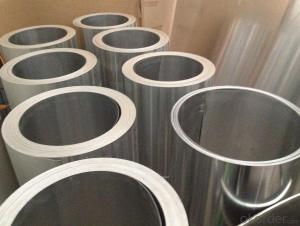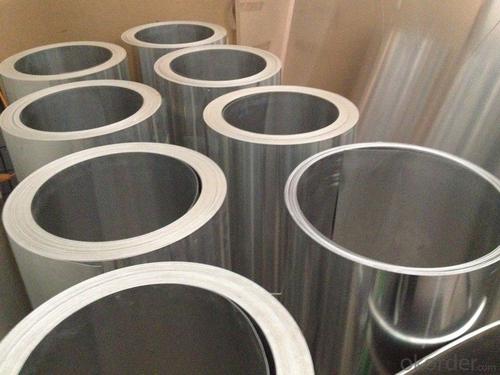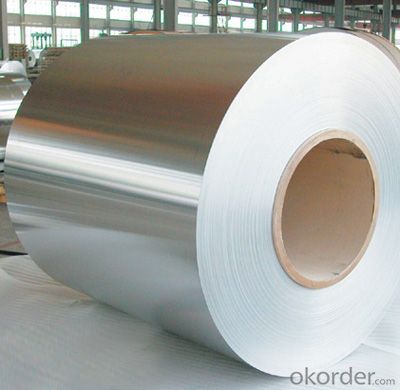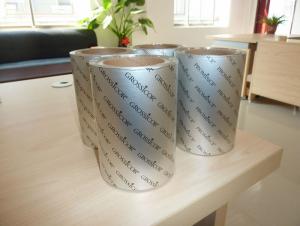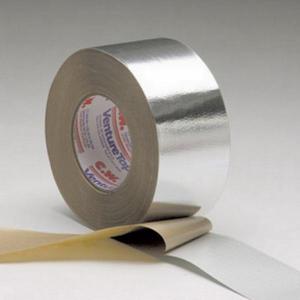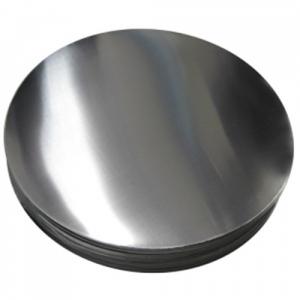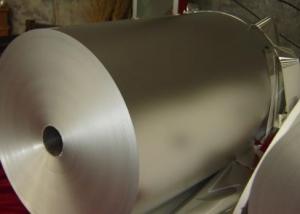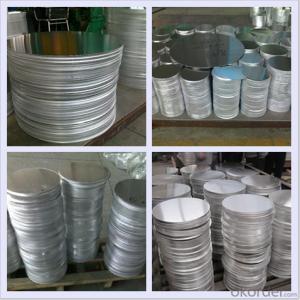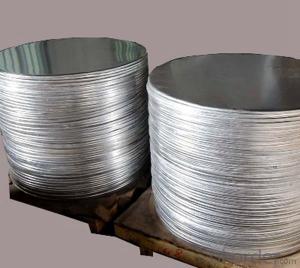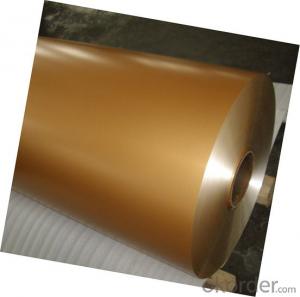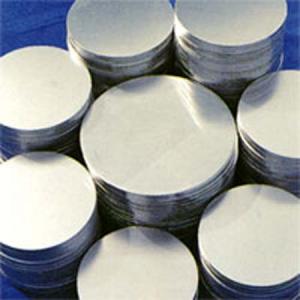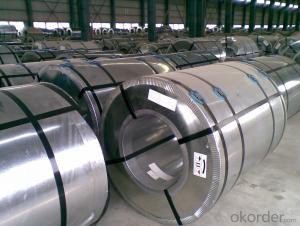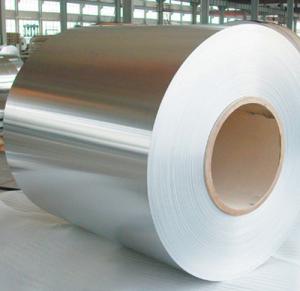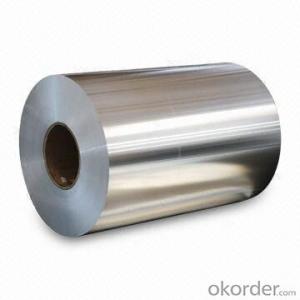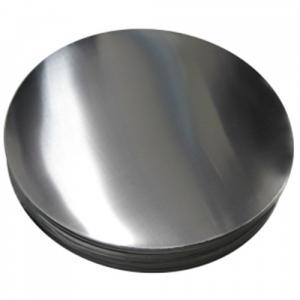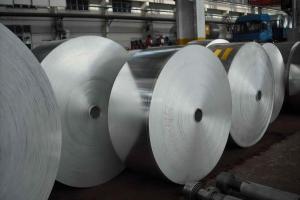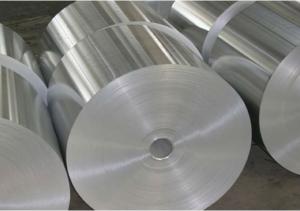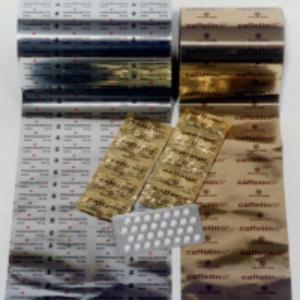Aluminum Anodized Aluminum Coil and Sheets from China
- Loading Port:
- Shanghai
- Payment Terms:
- TT OR LC
- Min Order Qty:
- 5 m.t.
- Supply Capability:
- 100000 m.t./month
OKorder Service Pledge
OKorder Financial Service
You Might Also Like
Specification
We produce color coated aluminum coil and aluminum foil for food container professionally.
The detail information as following:
Thickness :0.05mm-0.5mm
Width :20-1500mm
Alloy : 1100,3003,8011 and other different series
Temper : H12/H13/H22/H24 and others
Usege: food container and industrial usage.
Pack details:pack in rolls with plastic film by wooden box.
Container loading: 1x20ft container can load about 18 tons.
Specifications
Aluminum Coils - DC & CC
1) Alloy: 1xxx,1050,1060,1070,1100.1235
2) Temper: 0. H12. H14. H16. H18. H22. H24. H26. H32.H34
3) Thickness: 0.1~10mm
4) Width: 25~2100mm
5) Inside Diameter Min: 150mm
7) Outside Diameter Max: 2400mm
8) Dimensions can be produced according to clients' specifications
9) Good plasticity, conductivity
10) Generally used in industrial and construction applications
11) Packing: Standard Export Packing
12) Payment: T/T, L/C at sight
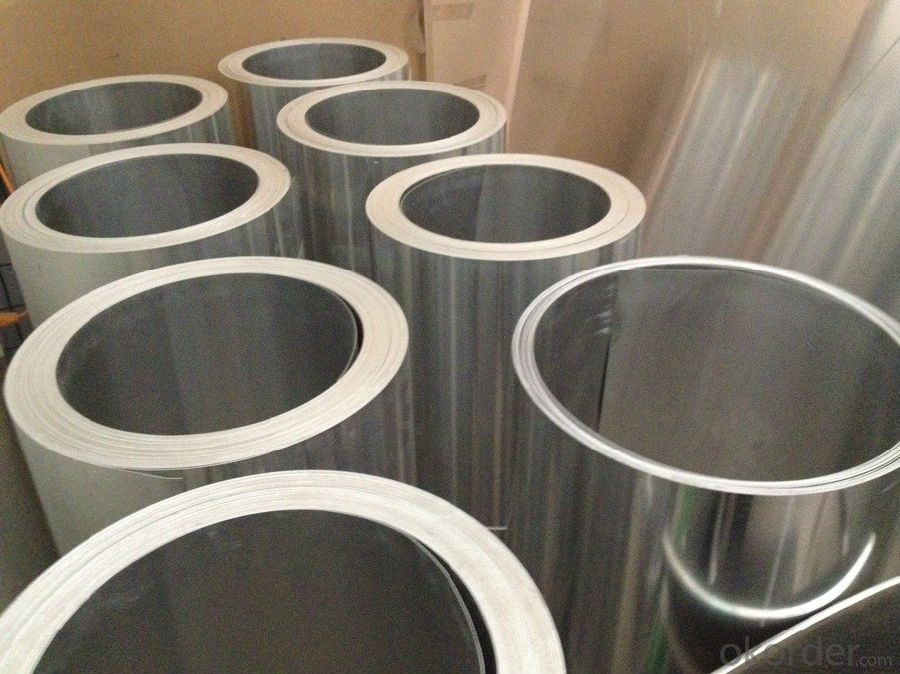
Alloy | Thickness(mm) | Width(mm) | Temper | DC & CC |
1050,1060,1070,1100,1235 | 0.1-10.0 | 25-2200 | O,H12,H14,H16,H18,H22,H24,H26,H32,H34 | DC, CC |
2.5-10.0 | 950-2300 | F, H111,H112 | DC | |
3003,3004,3102,3104 | 0.1-10.0 | 25-2200 | O,H12,H14,H16,H18,H22,H24,H26,H32,H34 | DC, CC |
2.5-10.0 | 950-2300 | F, H111,H112 | DC | |
5052,5083,5754,5005,5182 | 0.1-10.0 | 25-2200 | O,H12,H14,H16,H18,H22,H24,H26,H32,H34 | DC |
2.5-10.0 | 950-2200 | F,H111,H112 | DC | |
8011,8079 | 0.1-10.0 | 25-2300 | O,H12,H14,H16,H18,H22,H24,H26,H32,H34 | DC,CC |
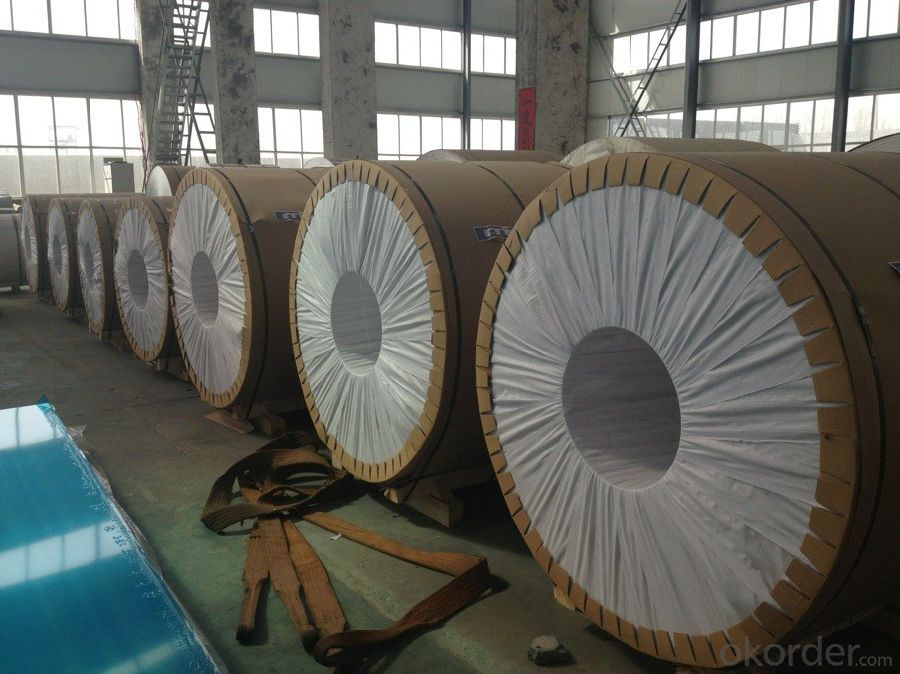
Application | Mainly in printing(PS plate base), Aluminum-plastic composite panel base, construction, decoration, capacitor, cover material, deep drawing products, refrigeration, air conditioner, automobile etc. | |||
Our products are widespread applied in mechanical, electric, transportation, construct, printing, packaging and other field. Applied specifically for beverage can, container, theft-proofing cap, cigarette package, commodity package, medicine package, etc;various uses of capacitors in power electronics industry; the flat sheet,corrugated plate,embossed plate in field of building’s structure, the PS plate in field of printing’s ; the household electrical appliances,daily aluminum products in Light industries, etc; as well as in field of mechanical, transportation, aviation and aerospace, aluminum foil is also used as a functional and structural material.
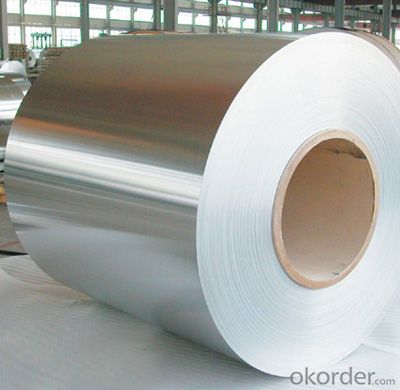
- Q: This question asks about the methods used to measure the purity of aluminum.
- <p>The purity of aluminum can be determined through various analytical techniques. One common method is spectroscopic analysis, which includes techniques like atomic absorption spectroscopy (AAS) and inductively coupled plasma mass spectrometry (ICP-MS). These methods can detect trace elements in aluminum, providing a measure of its purity. Another method is gravimetric analysis, where impurities are chemically separated and weighed to determine their concentration. X-ray fluorescence (XRF) is also used for non-destructive testing of aluminum purity. Each method has its advantages and limitations, and the choice depends on the required level of accuracy and the specific impurities of interest.</p>
- Q: This question asks about the impact of adding silicon to aluminum alloys on their characteristics.
- <p>Adding silicon to aluminum alloys significantly enhances their properties. Silicon increases the alloy's strength and hardness, making it more durable. It also improves the alloy's resistance to corrosion, particularly in harsh environments. The addition of silicon can also reduce the melting point of the alloy, which can be beneficial for casting processes. However, it should be noted that excessive silicon content can lead to a decrease in ductility and workability of the alloy. Overall, silicon is a common alloying element used to improve the mechanical properties and performance of aluminum alloys in various applications.</p>
- Q: This question asks whether it is safe to use aluminum cookware for pregnant women or individuals with health conditions.
- <p>While aluminum cookware is generally safe for most people, there are concerns about its potential health effects. Aluminum has been linked to cognitive issues and Alzheimer's disease, although the evidence is not conclusive. For pregnant women and those with health conditions, it is advisable to err on the side of caution. Opt for cookware made from stainless steel, cast iron, or non-stick materials without aluminum. If you must use aluminum cookware, avoid acidic or alkaline foods and ensure the cookware is not scratched, as this can increase aluminum leaching into food.</p>
- Q: This question asks for recent applications of aluminum in the transportation industry.
- <p>Aluminum has found new uses in transportation due to its lightweight and high strength properties. It's increasingly used in electric vehicles to reduce weight and extend battery life. Aluminum alloys are also utilized in the construction of high-speed trains and aircraft to improve fuel efficiency and performance. In addition, aluminum is employed in the manufacturing of automotive parts such as engine components, wheels, and body panels. Furthermore, it's used in the production of lightweight bicycles and other transportation infrastructure like bridges and road signs. The trend towards more sustainable and efficient transportation continues to drive innovative uses for aluminum.</p>
- Q: Describe the characteristics and properties of aluminum oxide.
- <p>Aluminum oxide, also known as alumina, is a compound of aluminum and oxygen with the chemical formula Al2O3. It is a white solid that is insoluble in water but soluble in acid and base. It has a high melting point (over 2000掳C), high hardness, and is chemically inert. Aluminum oxide is also a good electrical insulator and has a high refractive index. It is used in various applications, including abrasives, refractory materials, and as a catalyst in chemical processes. Additionally, it is biocompatible and is used in medical implants and dental materials.</p>
- Q: Is it possible to employ aluminum for the creation of innovative packaging materials?
- <p>Yes, aluminum is highly suitable for making new types of packaging materials due to its lightweight, malleability, and corrosion resistance. It is often used in food and beverage cans, pharmaceutical packaging, and even flexible packaging films. Aluminum's recyclability also makes it an environmentally friendly choice for sustainable packaging solutions. Innovations in aluminum packaging continue to emerge, focusing on improved barrier properties, lighter weight, and enhanced recycling capabilities.</p>
- Q: Is aluminum a material that can be utilized in medical or pharmaceutical applications?
- <p>Yes, aluminum is used in medicine and pharmaceuticals, primarily in the form of aluminum salts. It is used as an adjuvant in vaccines to enhance the body's immune response. Aluminum compounds are also used as antacids to neutralize stomach acid and in some medications as a buffering agent. However, its use is regulated due to potential health concerns, and it's important to note that aluminum is not used in direct contact with the body for extended periods due to its potential toxicity.</p>
- Q: This question asks about the energy savings achieved by utilizing recycled aluminum compared to producing new aluminum.
- <p>Using recycled aluminum saves a significant amount of energy. It requires only 5% of the energy needed to produce new aluminum from raw materials. This is because recycling aluminum involves melting the metal, which is much less energy-intensive than the mining, refining, and electrolysis processes required for new aluminum production. By recycling aluminum, we can save up to 95% of the energy that would be used in the production of new aluminum.</p>
- Q: Explain the relationship between aluminum and electrum, if any.
- <p>Aluminum and electrum are two distinct metals with no direct relationship. Aluminum is a lightweight, silvery-white metal that is the most abundant metallic element in the Earth's crust. It is known for its corrosion resistance and is widely used in various industries. Electrum, on the other hand, is a naturally occurring alloy of gold and silver, valued for its unique properties and historical significance. While both metals are used in various applications, they are chemically and physically different and do not have a direct connection.</p>
- Q: This question asks for a comparison of the benefits and drawbacks of utilizing aluminum in the construction of solar panels.
- <p>Aluminum offers several advantages in solar panel construction, such as its lightweight nature, which reduces the overall weight of the panels and makes them easier to install. It is also highly conductive, enhancing the efficiency of electricity generation. Additionally, aluminum is corrosion-resistant and durable, which means it can withstand harsh weather conditions and last longer. However, there are disadvantages, such as its relatively low strength compared to other metals, which could lead to damage under high stress. Aluminum also has a higher reflectivity, which can reduce the amount of sunlight absorbed by the solar cells. Lastly, while aluminum is abundant, its extraction and processing can have environmental impacts, contributing to carbon emissions and resource depletion.</p>
Send your message to us
Aluminum Anodized Aluminum Coil and Sheets from China
- Loading Port:
- Shanghai
- Payment Terms:
- TT OR LC
- Min Order Qty:
- 5 m.t.
- Supply Capability:
- 100000 m.t./month
OKorder Service Pledge
OKorder Financial Service
Similar products
Hot products
Hot Searches
Related keywords
